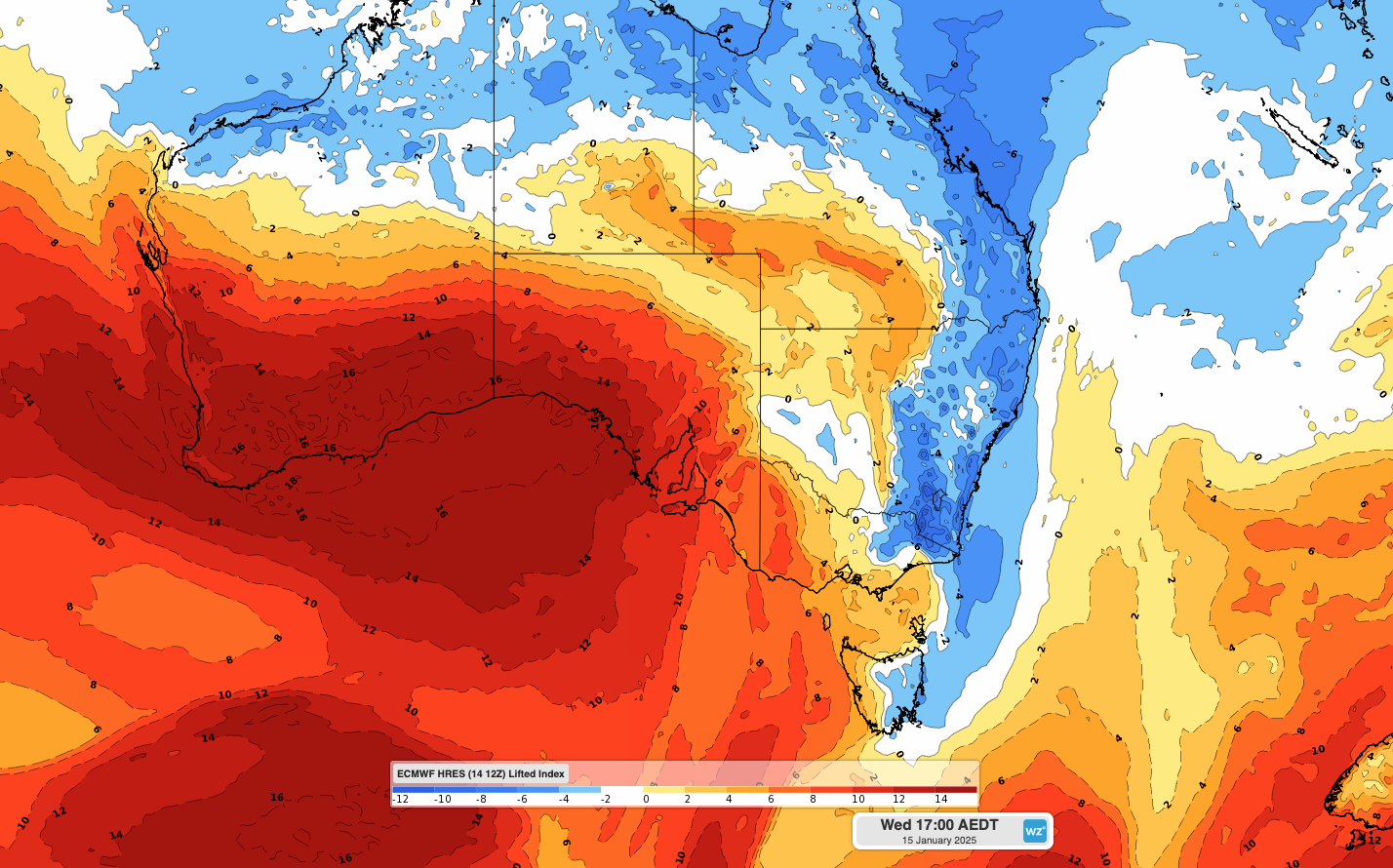Severe thunderstorm outbreak hitting eastern Australia
Violent thunderstorms will pummel parts of NSW, Queensland, Victoria and the ACT over the next couple of days, with potential for supercells and a dangerous squall line late on Wednesday.
An upper-level pool of cold air crossing southeastern Australia on Wednesday and Thursday will interact with a cold front, low pressure trough and moisture-laden air to create an ideal environment for dangerous thunderstorms.
This setup is likely to cause rain and thunderstorms from Qld down to Vic on Wednesday, with a few storms also possible in Tas and SA. Storm activity will persist overnight Wednesday into Thursday in some areas, with further storms expected to develop over parts of NSW and Qld during Thursday and possibly Friday.
Wednesday has the potential to be one of the most dangerous thunderstorm days we have seen so far this summer due to the ample instability and potential for supercells and a squall line. Damaging winds, large hail and heavy rain are all likely, with destructive winds and giant hail also a chance.

Image: Modelled lifted index values over southeastern Australia at 5pm AEDT on Wednesday, January 15. The lifted index is a storm risk parameter, with negative values (shaded blue) showing regions that have increased thunderstorm potential.
Supercell thunderstorms refer to rotating individual storm cells that have the potential to produce destructive winds, very heavy rain, giant hail and tornadoes. Supercells often move in a different direction to other surrounding storms cells and can last longer than less intense storms.
A squall line refers to an elongated line of thunderstorms cells that can cover a broad area, sometimes spanning hundreds of kilometres. Squall lines are often associated with heavy rain and damaging straight-line winds.
While there is a good chance of severe thunderstorms over a broad area of eastern and southeastern Australia on Wednesday, the greatest risk of supercells and squall lines will be over southern NSW and the ACT, most likely in the late afternoon and evening.
Dangerous storms will continue over parts of eastern Australia on Thursday, although the focus of the storms will contract to northeast NSW and southeast Qld.
The best place to look for more detail on individual storms and their impacts on Wednesday and Thursday will be the severe thunderstorm warnings issued by the Bureau of Meteorology.